How to Do the Manuel Antonio National Park Tour Right
If spotting sloths in the wild, walking under the shade of towering rainforest trees, and ending your hike on a postcard-perfect beach sounds like your kind of adventure — then a Manuel Antonio National Park tour belongs on your Costa Rica itinerary.
Whether it’s your first time in Costa Rica or you’re planning a multi-generational family trip, this national park offers one of the richest, most accessible wildlife experiences in the country. And with a local guide by your side, you won’t just see the forest — you’ll understand it.
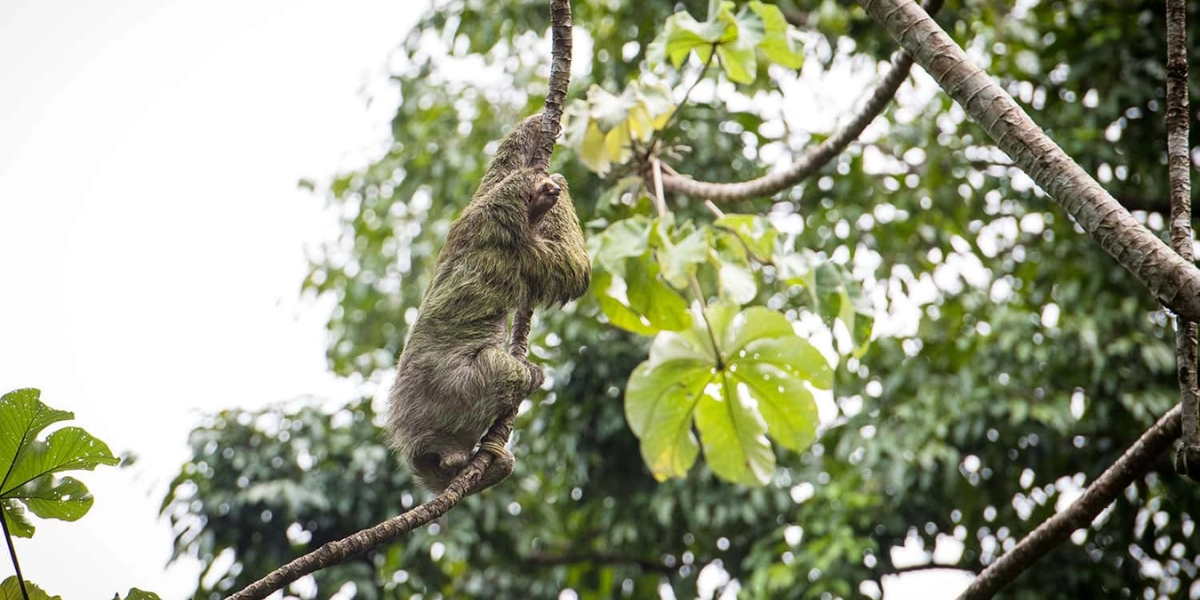
Why Manuel Antonio National Park Is a Must-Visit
Biodiversity in Every Direction
Despite being one of the smallest national parks in Costa Rica, Manuel Antonio is a giant in terms of biodiversity. Here, you can spot three-toed sloths, white-faced capuchin monkeys, iguanas, toucans, and even elusive squirrel monkeys — all within a few hours of hiking.
The park’s network of short, easy-to-moderate trails makes it ideal for families with kids or anyone not up for strenuous hiking. Many trails lead to stunning lookout points or down to the iconic beaches like Playa Manuel Antonio or Playa Espadilla Sur — where warm Pacific waters await.
A Naturalist’s Paradise
Manuel Antonio is not just about what you see, but how you see it. With a trained guide from Paddle 9, you’ll experience the forest through a whole new lens — quite literally, thanks to telescopes they bring along. These professionals know exactly where to look for camouflaged creatures and can explain fascinating ecological relationships between species. It’s like walking through a living documentary.
With just a short walk, you could spot:
-
Three species of monkeys
-
Two types of sloths
-
Frogs, basilisks, bats, and butterflies
-
Rare birds and colorful crabs
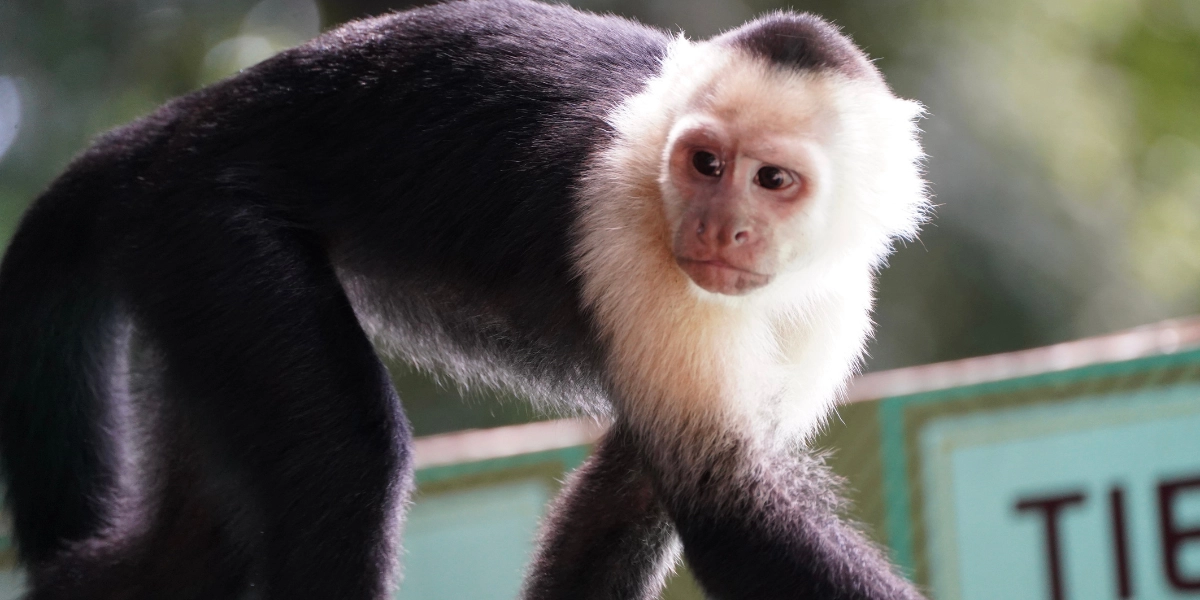
Fun Facts About Manuel Antonio National Park
-
It became a National Park thanks to students & locals who fought for access in the 1970s. It was officially declared a national park in 1972.
-
Home to 3 species of monkeys and 2 types of sloths, plus toucans, iguanas, raccoons, deer, frogs, and even crocodiles.
-
Punta Catedral was once an island—now it’s connected by a sandy land bridge called a tombolo.
-
One of the most accessible parks in Costa Rica: El Manglar trail includes braille signs, benches, and wheelchair-friendly paths.
-
Food is not allowed inside the park to protect the animals. Water, baby food, and special diets are permitted.
-
Don’t feed or touch wildlife—it can seriously harm them (and yes, monkeys will steal your snacks if they smell them).
-
Expect tropical heat & humidity: temperatures range from 75–90°F (24–32°C), and it rains a lot—especially May to November.
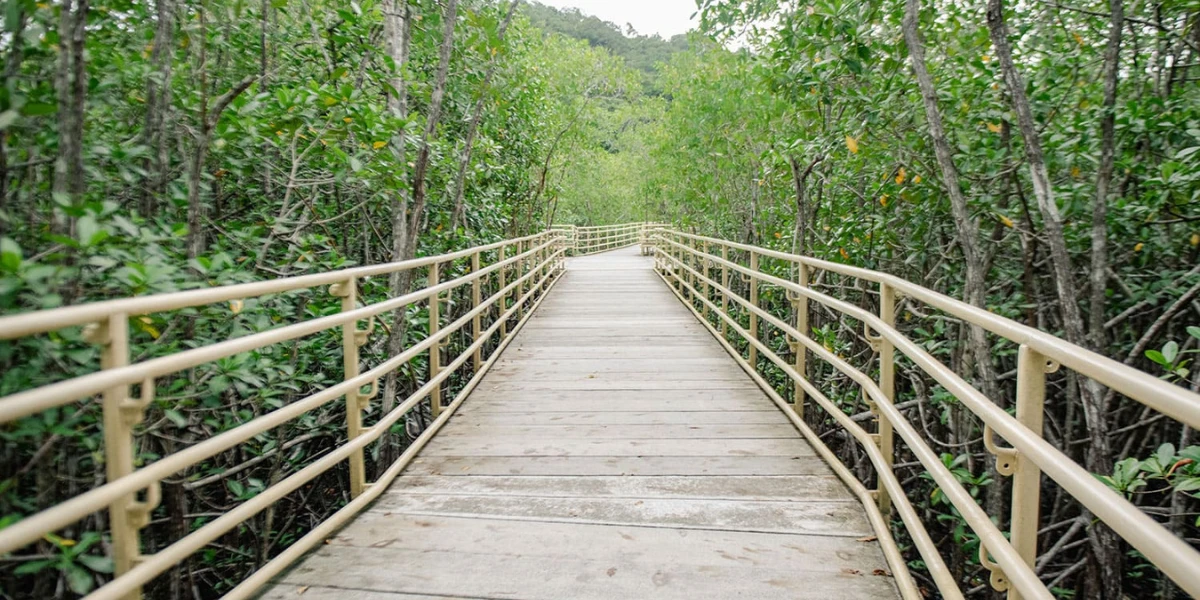
Tour vs. Self-Guided: What’s Best for You?
When to Book a Guided Tour
- You want to maximize your wildlife sightings.
- You’re traveling with kids or older family members who love learning.
- You prefer a stress-free experience with transportation, entrance tickets, water, and snacks all handled for you.
- You only have one day and want to make the most of it.
Our guided tours typically last around 2 hours and include time at the beach afterward. You’ll finish the tour with your head full of stories and your camera roll full of close-up animal shots.
When a Self-Guided Visit Might Work
- You’re on a tight budget.
- You’ve visited before and want to take your time at your own pace.
- You’re more interested in the beaches and scenery than wildlife spotting.
Just keep in mind: park entry must be purchased online in advance and entrance slots are limited — especially during peak seasons.
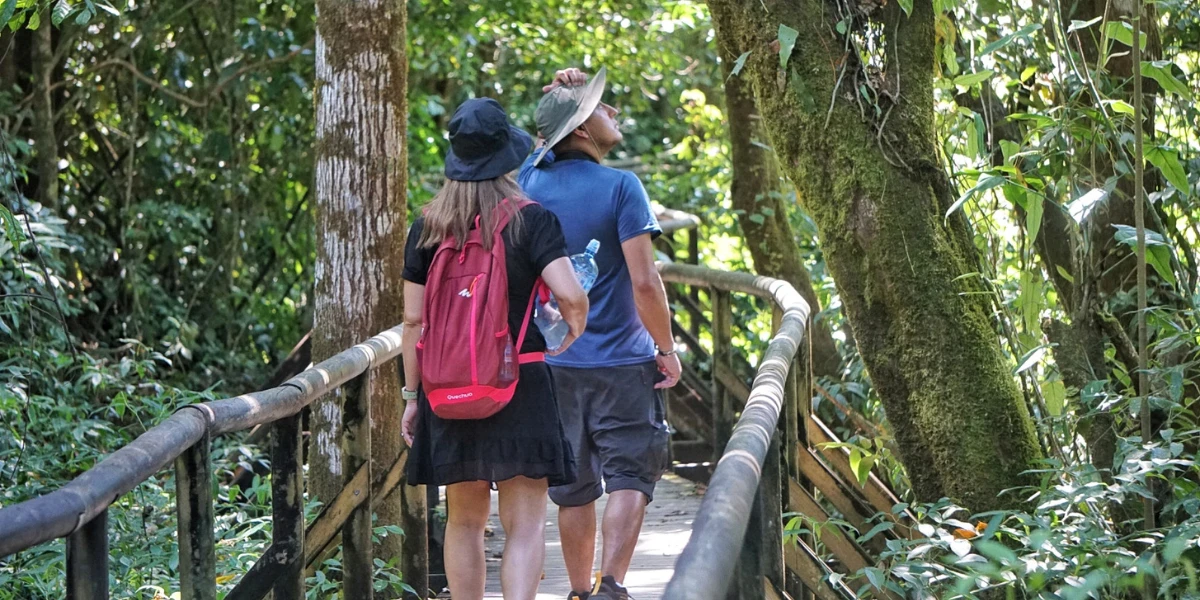
Tour Details: What You Need to Know
Our Paddle 9 guides are storytellers, wildlife whisperers, and good-vibe creators. You’ll leave with more than photos — you’ll leave with a connection.
Here’s everything you need to plan your visit without missing a beat:
- Duration: Approx. 2.5 hours
- Pick-up Times: 7:30 AM or 12:30 PM
- Age Recommendation: Great for all ages (from 4 years and up)
- What’s Included:
- Round-trip transportation
- Bottled water
- Bilingual naturalist guide
- Personal binoculars for each visitor
“Ariel had great energy and an even more positive mindset — funny, informative, and engaging. One of the best tours we did in Costa Rica.”
— Elizabeth M, April 2025
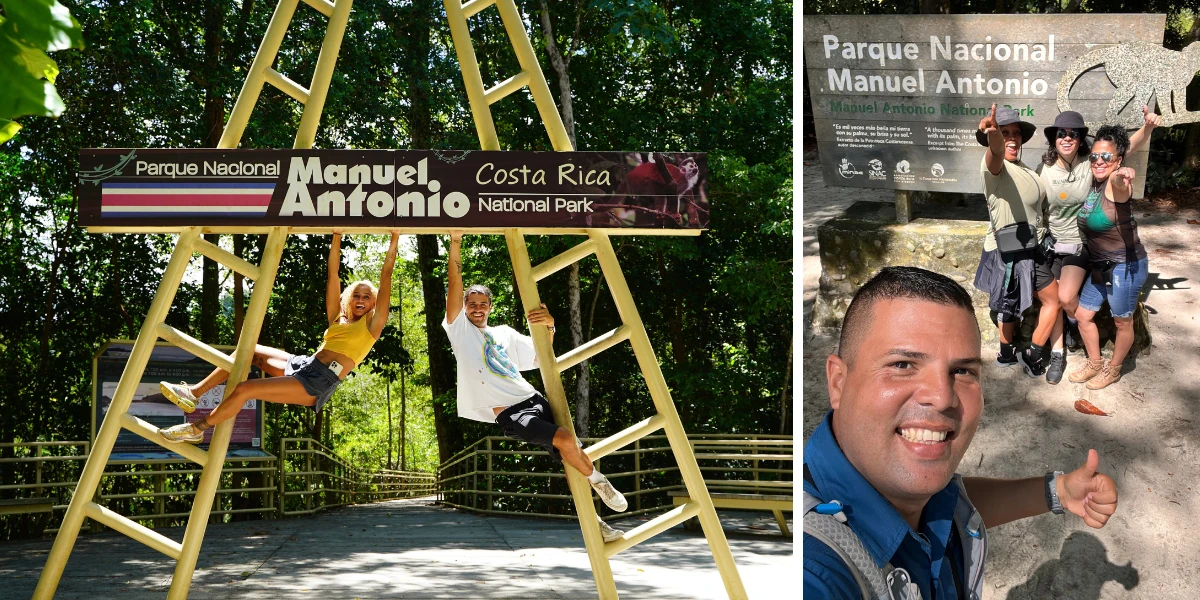
What to Bring: Your Manuel Antonio Packing Checklist
The rainforest might look like paradise, but you’ll enjoy it a lot more if you come prepared. Here’s what we recommend:
- Lightweight clothing (quick-dry shirts, running shorts)
- Hiking sandals or sneakers (no need for heavy boots)
- Swimsuit and towel if you plan to hit the beach
- Waterproof backpack (especially May–Dec)
- Insulated water bottle (hydration = happiness)
- Sunscreen & mosquito repellent
- Hat and sunglasses
- Park ticket (pre-purchased online)
Bonus tip: binoculars are great, but not necessary if you’re going with a guide who brings a spotting scope.
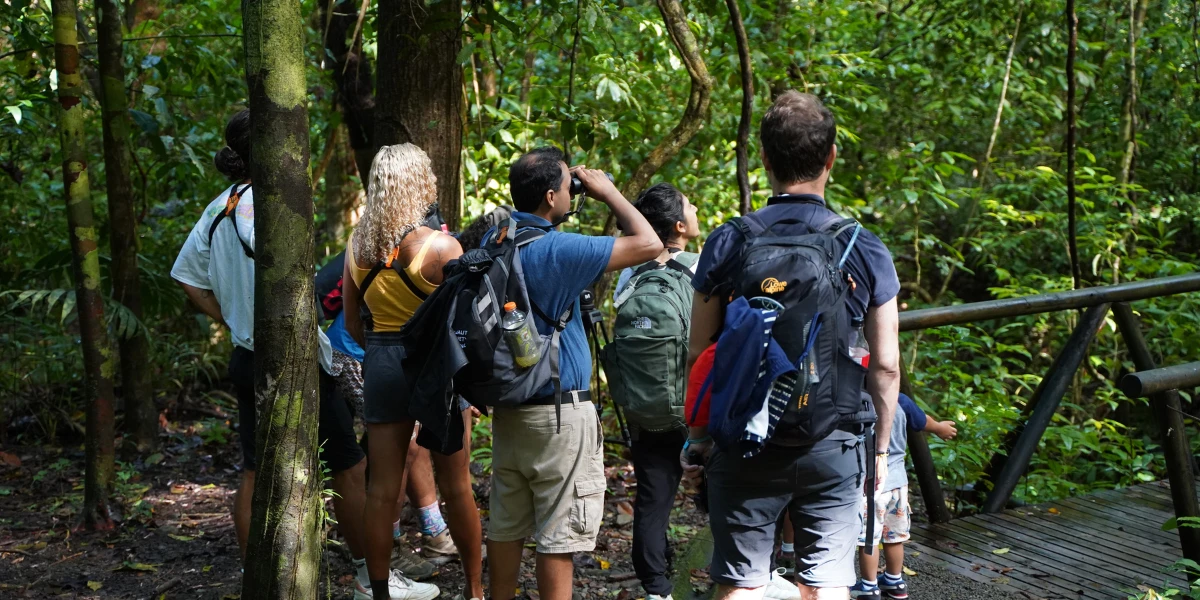
Wrap-Up: Paradise Is Closer Than You Think
Manuel Antonio is more than a destination — it’s a living classroom, a photographer’s dream, and a sanctuary where nature does all the talking.
Whether you want to uncover the hidden wildlife with a local expert or just walk the jungle paths that end at the beach, there’s no wrong way to explore this national treasure. But for the best experience possible — especially with limited time — a guided tour truly makes the difference.
So…
If your idea of travel includes jaw-dropping nature, real connection, and the feeling of being truly alive — this is your trailhead.